Horticulture, the mainstay of Kashmir’s economy, with around 3.5 million people directly or indirectly associated with this sector, and a ₹10,000-crore industry in Jammu and Kashmir, has taken a major hit this year due to relentless rain and resultant flooding.
Known as the “apple bowl of India”, Kashmir produces the largest quantity of the fruit in the country. The harvesting season usually runs from late August through October, when growers are at their busiest, sending produce to markets across India and abroad.
This year tells a different story. Incessant rain followed by unprecedented floods submerged orchards across the Valley. Landslides subsequently led to the closure of the only major National Highway connecting Kashmir with the rest of the country.
Flooding and waterlogging damaged the fruit on trees, causing many apples to rot or fall prematurely. There is also a fear that prolonged standing water could harm the root systems, affecting the long-term health of trees.
The highway to Jammu and beyond — the primary artery for moving agricultural produce out of the Valley — was closed for around nine days. Thousands of trucks laden with apples were stranded along the route, exacerbating post-harvest losses. With perishable goods stuck in transit, several boxes were spoiled, further increasing the financial burden on farmers and traders. According to fruit traders, losses were going to be in the region of ₹500 crore to ₹700 crore.
In the wake of the highway closure, the Union Railway Minister announced the first goods train from Budgam in Kashmir to New Delhi, starting September 13. The first dedicated fruit train is set to leave the Valley on September 15, taking 23 hours to reach its destination. Fruit growers began loading apples on September 11 and 12.
While fruit traders have welcomed this move, they stress the need for a much higher frequency of trains and an additional number of coaches, as currently only eight have been allocated.
The combined effect of crop damage and logistical challenges threatens the livelihoods of farming families and the local economy, which heavily relies on apple exports.
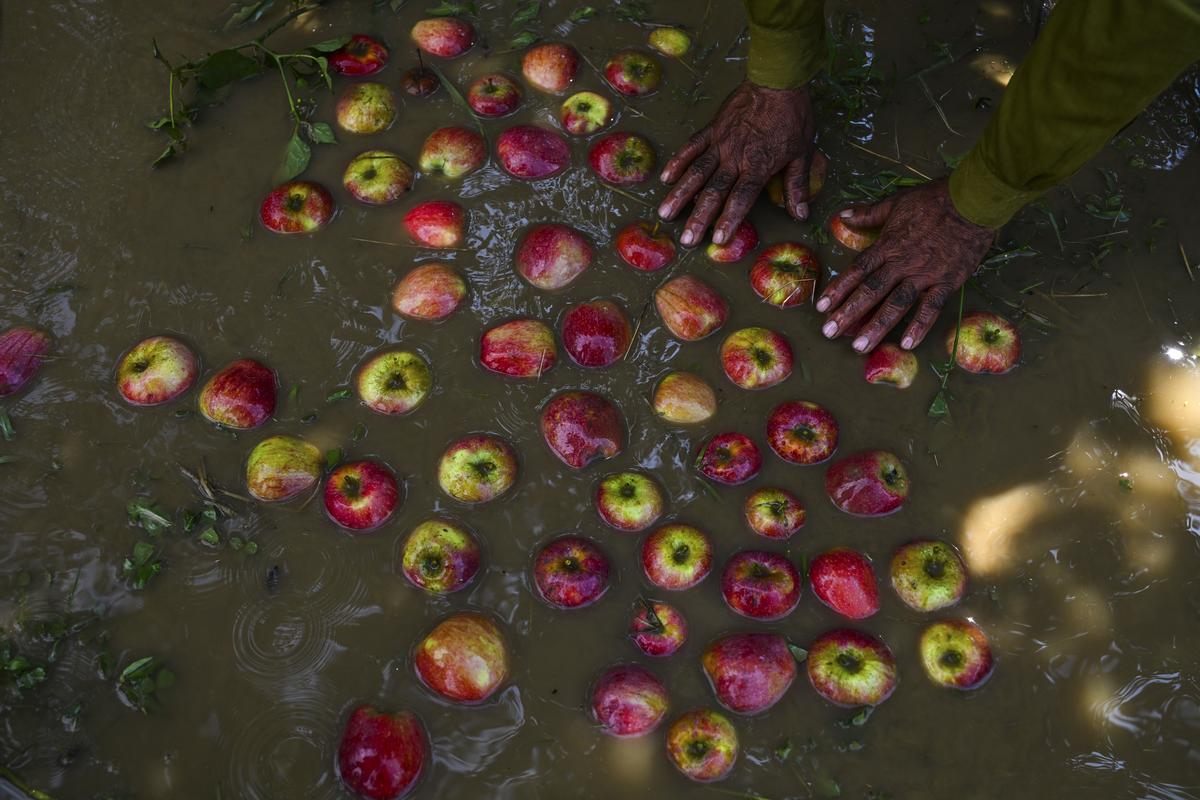
Photo:
Imran Nissar
Wasted effort: Apples lie scattered across a flooded orchard, as a farmer tries to save some of the crop.
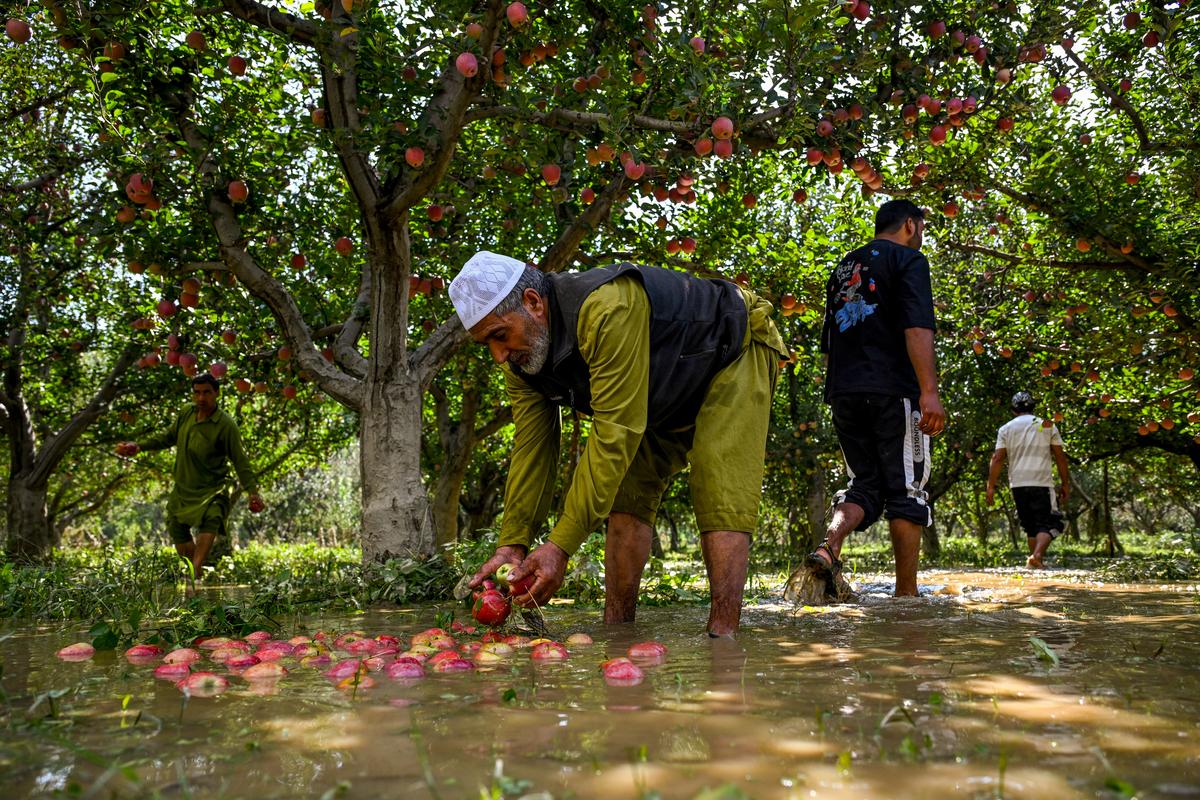
Photo:
Imran Nissar
Fallen hope: A grower gathers fallen fruit after the prolonged waterlogging in the Valley’s orchards.
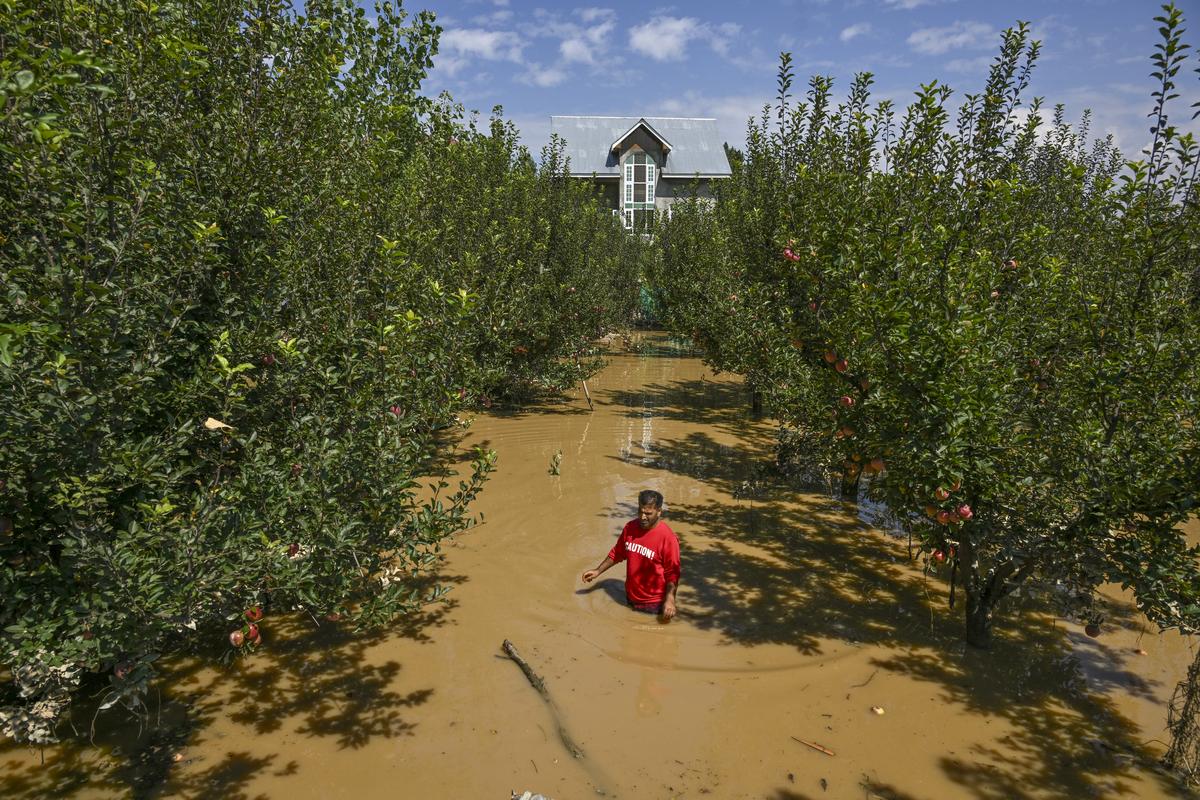
Photo:
Imran Nissar
Bitter harvest: An apple grower walks through a submerged orchard at Ratnipora in Pulwama district of south Kashmir, 55 km from Srinagar.
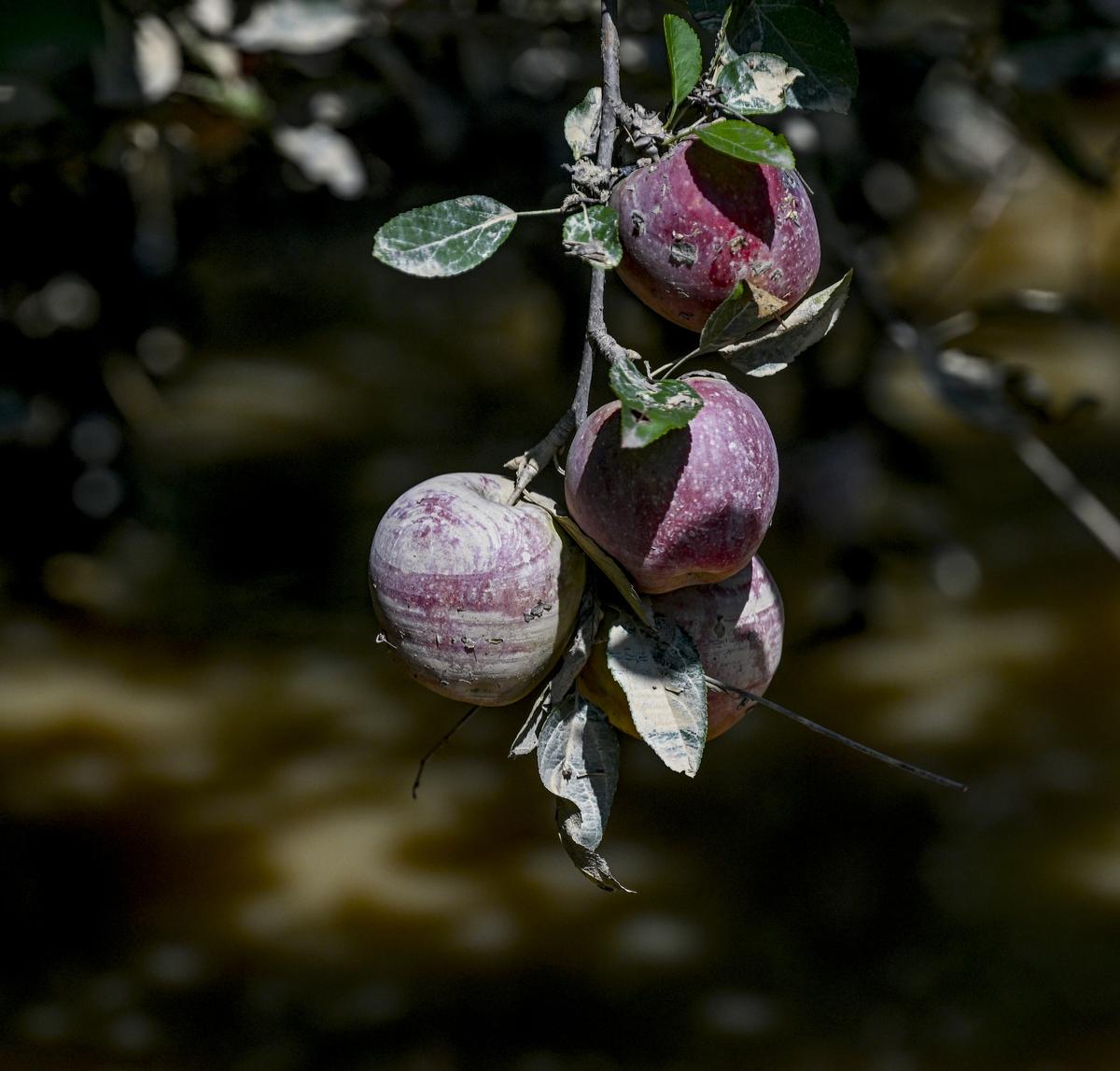
Photo:
Imran Nissar
Muddy season: Fruit smeared with mud hang from branches.
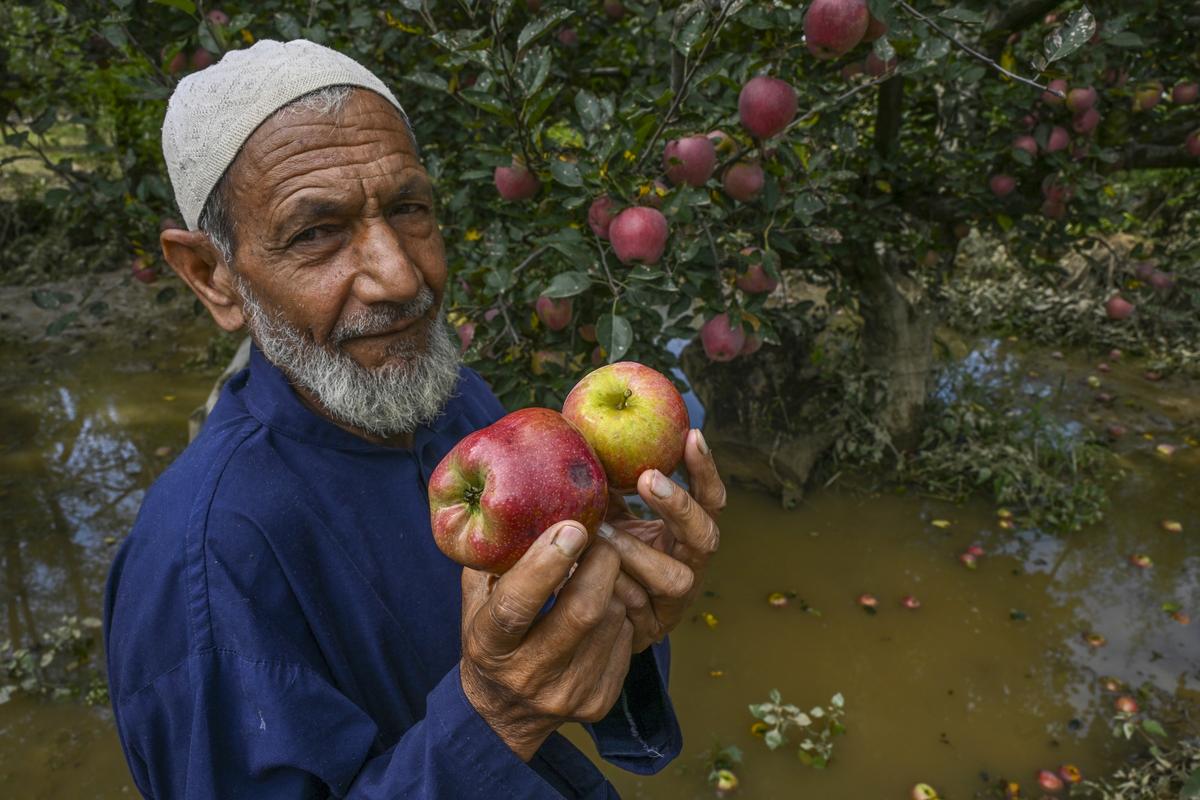
Photo:
Imran Nissar
In peril: Flooding and waterlogging damages the fruit on trees, causing many apples to rot or fall prematurely.
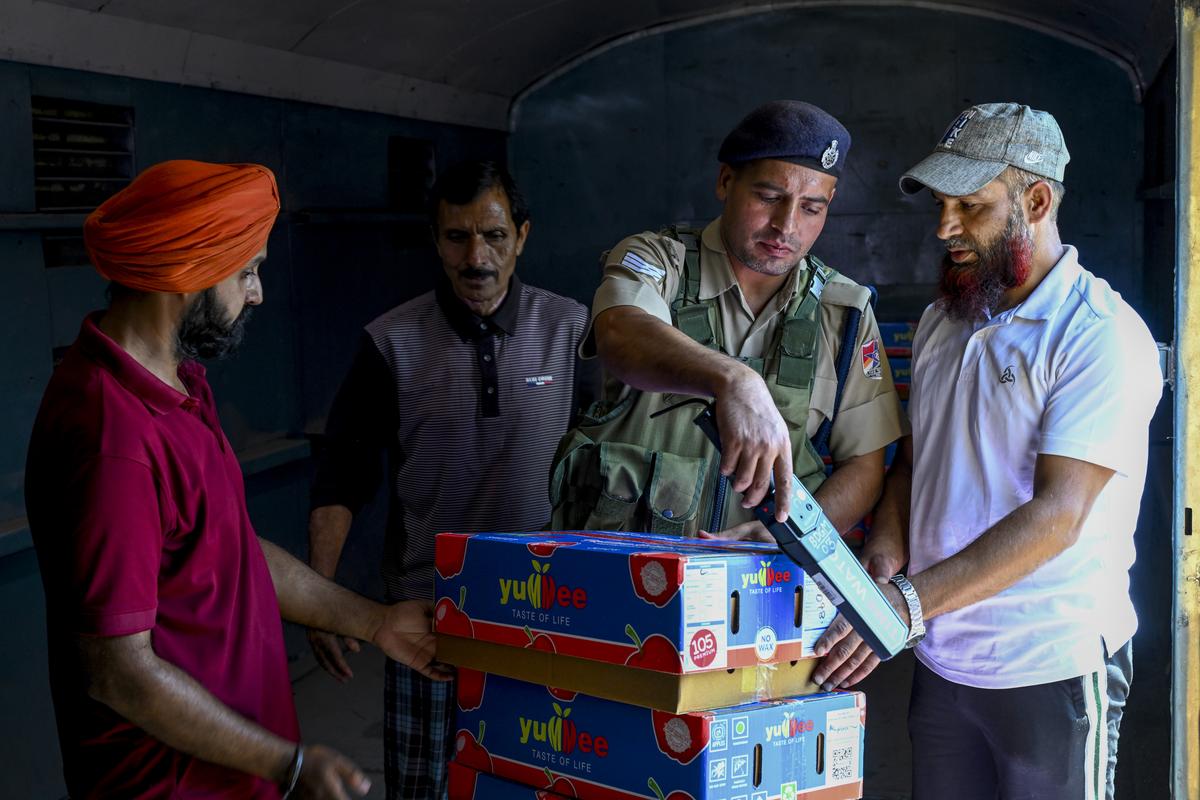
Photo:
Imran Nissar
Some relief: A policeman checks apple boxes before they are loaded onto a railway parcel van at Budgam Railway Station.
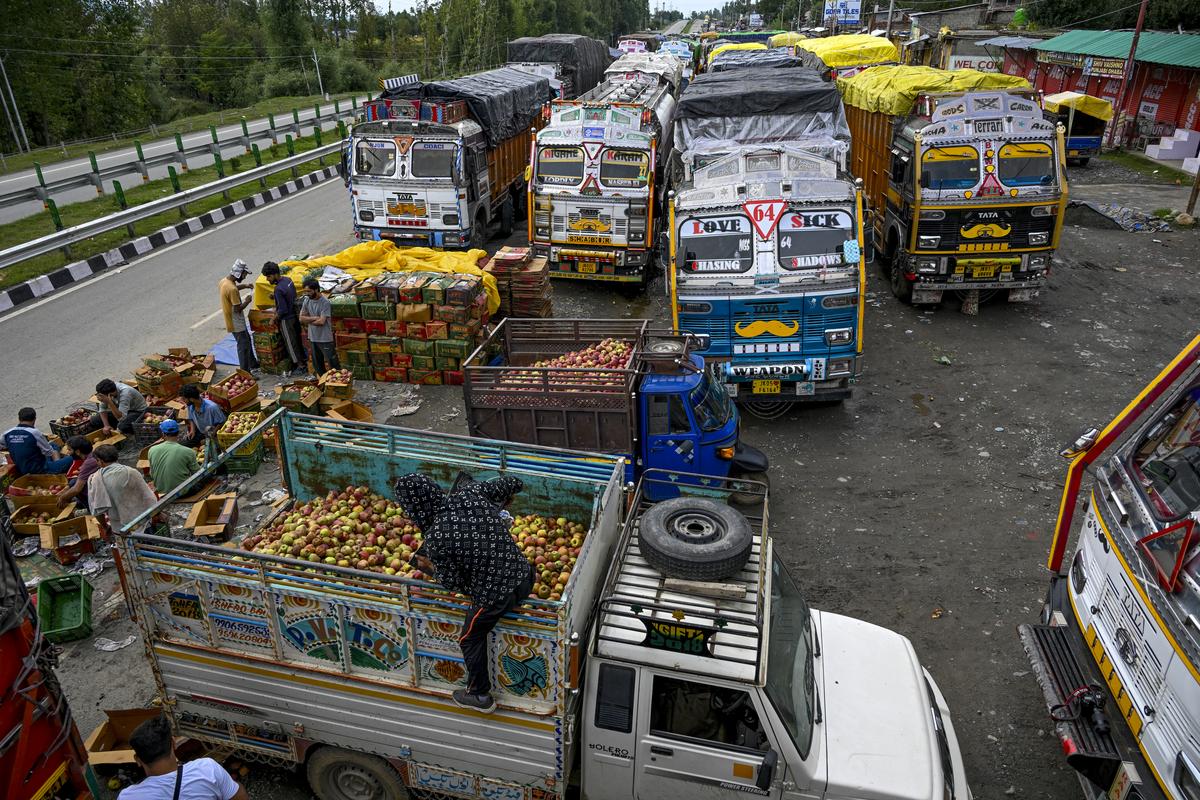
Photo:
Imran Nissar
Stranded produce: Truck drivers and traders separate rotten apples as the floods left thousands of boxes stranded on the highway.
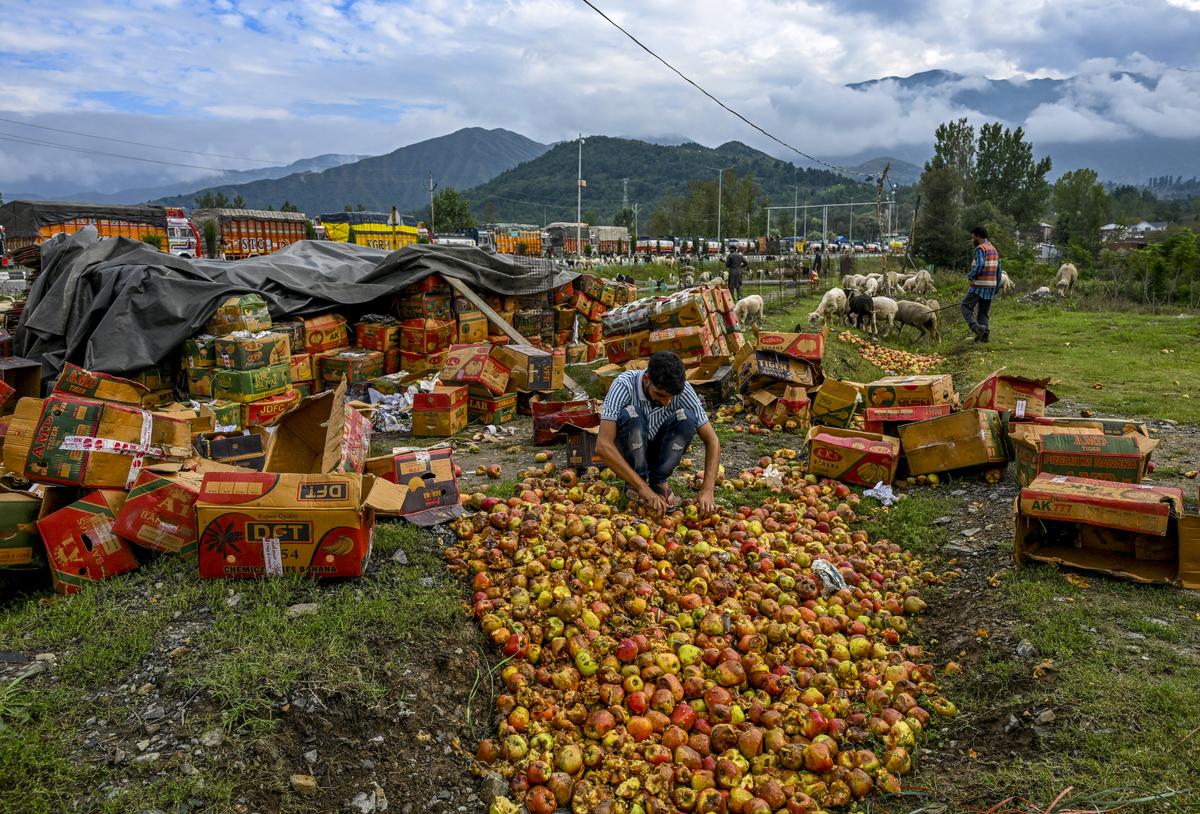
Photo:
Imran Nissar
Major loss: Truck drivers display rotten apples discarded along the Srinagar-Jammu National Highway in Qazigund.
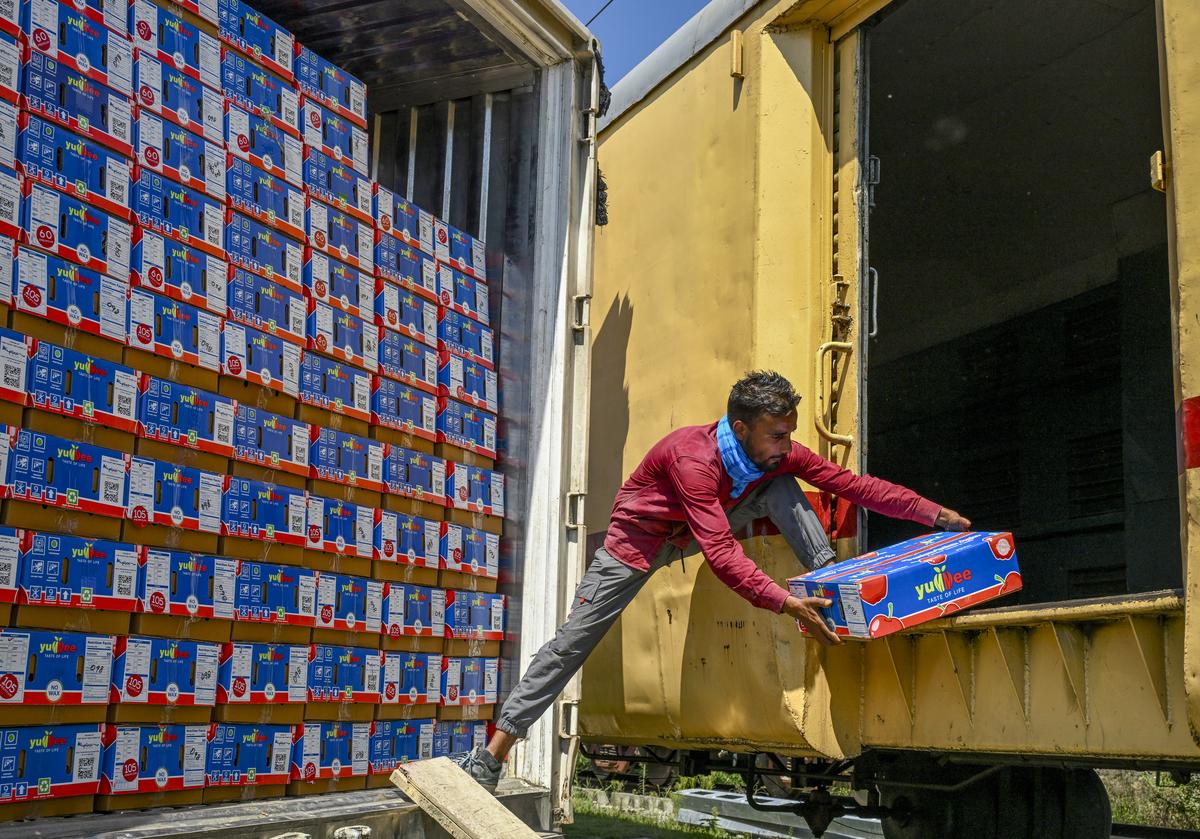
Photo:
Imran Nissar
Fruit on the move: An apple truck waits next to a railway parcel van on September 11 as the Indian Railways begins daily train services to help the produce reach markets.
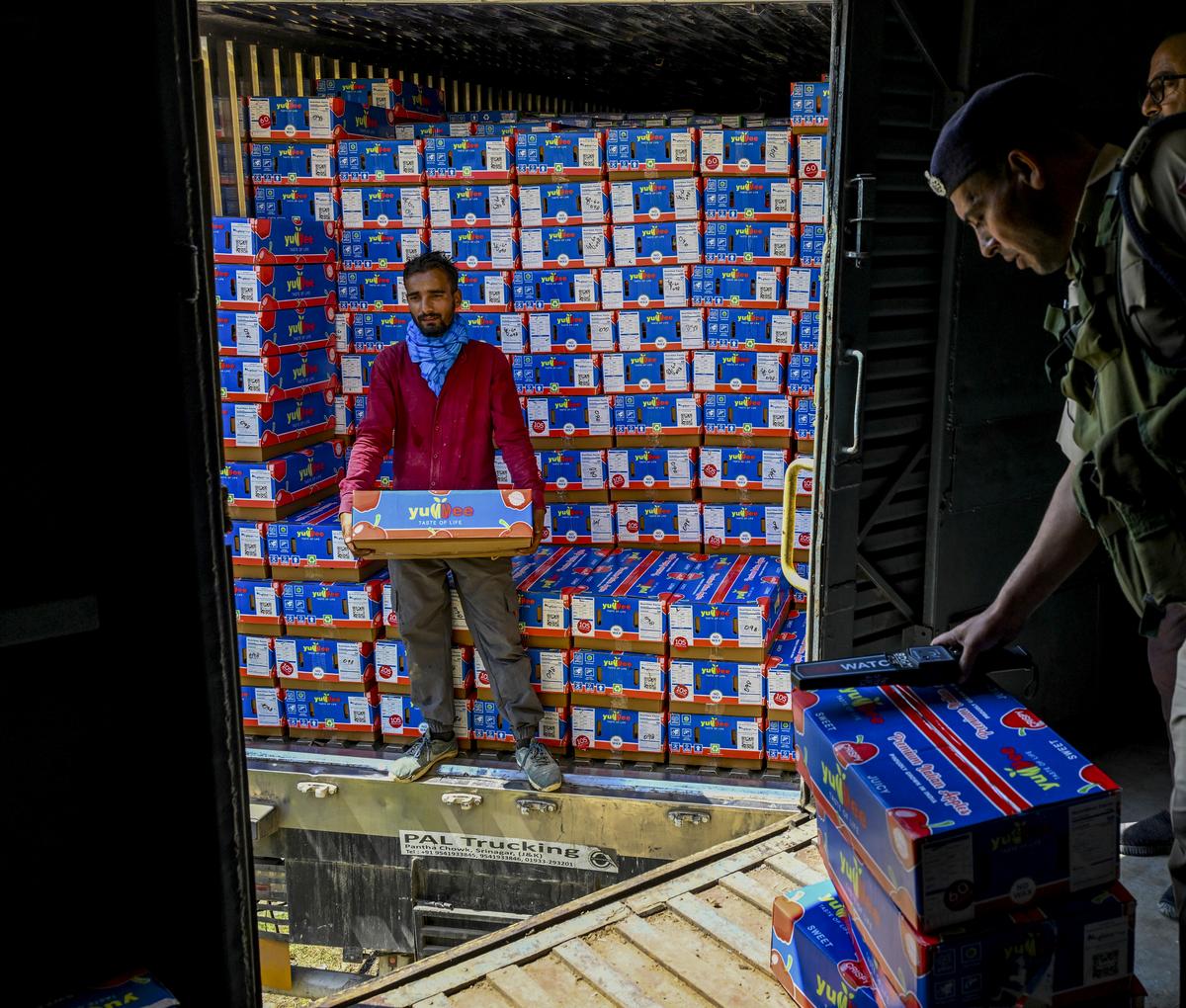
Photo:
Imran Nissar
Awaiting dispatch: The launch of a daily parcel train service to Delhi came as a big relief to the apple growers. One parcel van can carry 23 tonnes of apples.
Published – September 14, 2025 11:14 am IST
